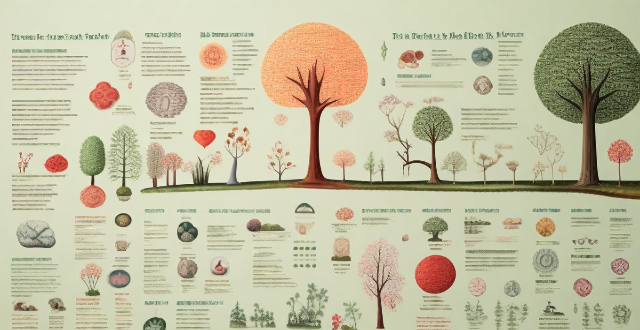Climate change and environmental racism are interconnected issues that disproportionately affect marginalized communities. The relationship between the two is multifaceted, involving displacement, health impacts, economic disparities, infrastructure vulnerabilities, and limited access to information and resources. To address these issues, pursuing climate justice is crucial, which involves ensuring equal representation in climate policy decisions and equitable distribution of benefits and burdens associated with climate action. Key strategies for achieving climate justice include community engagement, equitable resource allocation, health protection measures, economic opportunities, infrastructure resilience, access to information, legal protections, and global cooperation.

The Relationship between Climate Change and Environmental Racism
Climate change and environmental racism are interconnected issues that disproportionately affect marginalized communities. Environmental racism refers to the systematic discrimination against certain groups based on their race, ethnicity, or socioeconomic status, resulting in disproportionate exposure to environmental hazards such as pollution, toxic waste, and climate-related disasters.
How Climate Change Contributes to Environmental Racism
1. Displacement and Relocation: As climate change leads to rising sea levels, droughts, and extreme weather events, vulnerable communities are often forced to relocate. This can result in the loss of cultural heritage, displacement from ancestral lands, and increased vulnerability to further environmental hazards.
2. Health Impacts: Climate change exacerbates existing health disparities by increasing the prevalence of respiratory illnesses, heat-related illnesses, and vector-borne diseases like malaria and dengue fever. These health impacts are felt more severely by communities with limited access to healthcare resources.
3. Economic Disparities: Climate change can disrupt local economies, particularly in rural areas where livelihoods depend on agriculture and natural resources. This can lead to increased poverty and economic instability, further entrenching environmental racism.
4. Infrastructure Vulnerabilities: Marginalized communities often lack adequate infrastructure to cope with climate-related disasters, making them more vulnerable to damage from floods, hurricanes, and other extreme weather events.
5. Access to Information and Resources: Limited access to information about climate change and its impacts, as well as a lack of resources for adaptation and mitigation efforts, can leave marginalized communities unprepared for the consequences of climate change.
Addressing the Issue through Climate Justice
To address the relationship between climate change and environmental racism, it is essential to pursue climate justice, which involves ensuring that all individuals and communities have an equal voice in climate policy decisions and bear an equitable share of the benefits and burdens associated with climate action.
Key Strategies for Achieving Climate Justice Include:
- Community Engagement: Engaging marginalized communities in the development of climate policies and initiatives ensures that their unique needs and perspectives are taken into account.
- Equitable Resource Allocation: Allocating funding and resources for climate adaptation and mitigation efforts in a way that prioritizes the needs of vulnerable communities.
- Health Protection Measures: Implementing public health measures to protect against climate-related health impacts, particularly in communities disproportionately affected by these issues.
- Economic Opportunities: Creating economic opportunities that support sustainable livelihoods and help build resilience against climate change impacts.
- Infrastructure Resilience: Investing in infrastructure improvements that enhance the ability of marginalized communities to withstand climate-related disasters.
- Access to Information: Providing accessible information about climate change and its implications, as well as resources for adaptation and mitigation strategies.
- Legal Protections: Enforcing laws and regulations that protect against environmental racism and ensure fair treatment of all communities affected by climate change.
- Global Cooperation: Collaborating internationally to address climate change, recognizing that its impacts transcend national boundaries and require collective action.
By pursuing climate justice, we can work towards a future where the effects of climate change do not disproportionately harm marginalized communities, fostering a more equitable and resilient society for all.